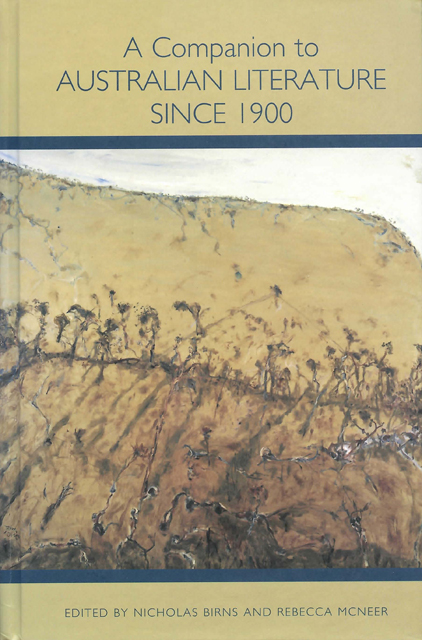Book contents
- Frontmatter
- Dedication
- Contents
- Chronology of Main Events in Australian History, 1901–2005
- Acknowledgments
- Note on the Cover Illustration and Artist
- Introduction
- Part 1 Identities
- Part 2 Writing Across Time
- Part 3 International Reputations
- Part 4 Writers and Regions
- Part 5 Beyond the Canon
- Notes on the Contributors
- Index
8 - Australian Women’s Writing from 1970 to 2005
Published online by Cambridge University Press: 10 March 2023
- Frontmatter
- Dedication
- Contents
- Chronology of Main Events in Australian History, 1901–2005
- Acknowledgments
- Note on the Cover Illustration and Artist
- Introduction
- Part 1 Identities
- Part 2 Writing Across Time
- Part 3 International Reputations
- Part 4 Writers and Regions
- Part 5 Beyond the Canon
- Notes on the Contributors
- Index
Summary
In This Chapter I adopt three different approaches. In the first section I present an overview of the period under question, tracing the impact of cultural and political shifts on women’s writing in Australia. In the second part, I consider more rigorously the historical, temporal, and thematic frames in which Australian women’s writing has been produced and read. In the third section I focus on particular texts by Australian women, seeking both to enact some of the tensions signposted in the second section and to suggest formal and thematic preoccupations that inform recent Australian women’s writing. This chapter cannot (and should not aim to be) whole nor canon-making in itself, hence the inconclusive conclusion. Instead, it is a supplement to the overlapping scholarly and publishing industries that, in part, must be accredited with the creation, maintenance, and perhaps even demise of the very concept of Australian women’s writing itself (Bird, 184).
Australian Women’s Writing from 1970 to 2005
From the 1970s, Australian women’s writing influenced, and was produced by, the women’s liberation movement and the rise of Aboriginal counterdiscourses. In 1964, Oodgeroo Noonuccal (Kath Walker) had successfully published her first book of poetry, We Are Going, and over a decade later, as Anne Brewster has observed, “a wave of [Aboriginal] women’s autobiographical and autobiographically based narratives began,” albeit not without controversy regarding the interventions of non-Indigenous editors (Brewster, 7). Margaret Tucker published If Everyone Cared (1977), and in the following year both Monica Clare’s Karobran: The Story of An Aboriginal Girl (1978) and Ella Simon’s Through My Eyes (1978) appeared. In 1981, Shirley Smith and Bobbi Sykes’s collaborative work, Mum Shirl, was released.
Alongside these narratives that attest to the gendered impact of settler capitalism on Indigenous lives, families, and identities, white women werebeginning to reshape the cultural environment in Australia. Thea Astley, for example, whose impressive writing record stretches over decades from the 1950s, published important volumes such as Hunting the Wild Pineapple (1979).
- Type
- Chapter
- Information
- A Companion to Australian Literature since 1900 , pp. 139 - 154Publisher: Boydell & BrewerPrint publication year: 2010



